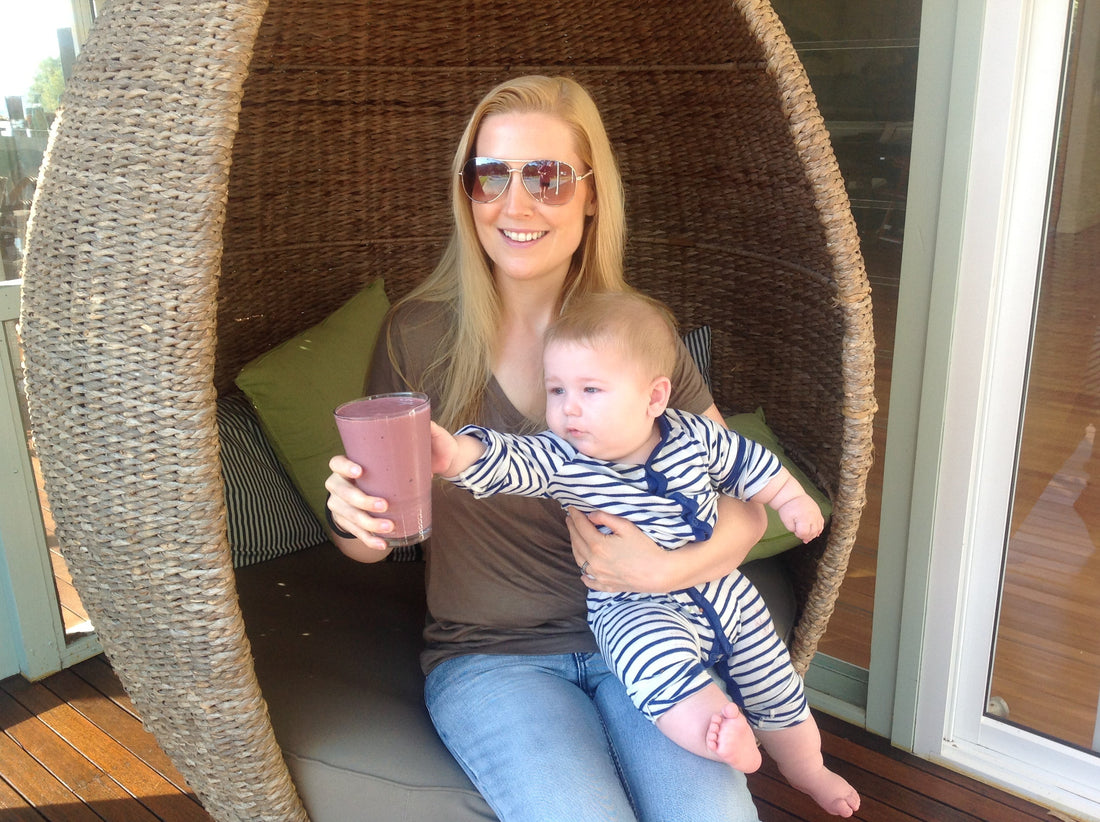
Everything you need to know about post pregnancy weight loss
Congratulations on becoming a mum! My name is Rhian, and I’m a mum of two boys, so I completely understand how busy and overwhelming motherhood can be.
I also know that our own health and wellbeing can end up at the bottom of the list when we have so much on our plate (and not enough sleep!).
But our health should be at the top of the list, as being strong, healthy, and having energy for our children is crucial — it also helps to protect our longevity.

I started Zing Wellbeing because I want to help women take a holistic approach to health.
Our mental wellbeing is just as important as our physical health, especially when
we become mums.
Zing Wellbeing covers all aspects of your health, from food to fitness to mental wellbeing.
We also offer new mum workouts, breastfeeding-friendly meal plans and healthy weight loss programs
Thousands of women are already using our programs, and it’s been truly game-changing.
And here we will cover all you need to know about post pregnancy weight loss
When Can I Start Losing Weight After Pregnancy?
After giving birth, you’ll naturally shed a few kilograms as your baby is born and your body begins adjusting. However, you may find that some extra weight remains, which is perfectly normal.
While it might be tempting to focus on losing weight immediately—especially with the pressure from celebrity culture—it’s important to prioritise your recovery.
Gentle exercise, like walking, can often be started soon after birth with your doctor’s approval. However, many new mums choose to spend the first 6–12 weeks healing, bonding with their baby, and adjusting to their new routine.

The timing for starting weight loss efforts can depend on factors like whether you had a vaginal delivery or a C-section and how your pregnancy and birth experience went.
The good news? You can support your body’s recovery and healthy weight loss right away by nourishing yourself with wholesome, nutrient-packed meals.
Tip: If you’re still pregnant, consider preparing and freezing healthy meals in advance. This way, you can avoid the stress of cooking during those early postpartum weeks!
How Much Weight Do You Lose Right After Birth?
When you give birth, your body will immediately release some weight. This includes the weight of your baby (around 3kg), the placenta (approximately 700g), and amniotic fluid (about 1kg).
However, your body will still carry additional weight from:
- Increased blood volume (~1.6kg)
- Extra fluid (~1.6kg)
- A larger uterus (~1kg)
- Increased breast tissue (~1kg)
- Fat stores (~3kg or more)
Over the weeks following birth, your body will naturally shed some of this weight as blood volume and fluid levels normalise. This process might include postpartum sweating and lochia as your body adjusts, and your uterus will gradually contract back to its pre-pregnancy size.
Breast tissue changes will persist while you’re breastfeeding, and those fat stores may take longer to reduce. Achieving your pre-pregnancy weight will take time, and that’s okay—be patient with your body as it heals.

Does Breastfeeding Help You Lose Weight?
You’ve probably heard that breastfeeding helps with weight loss, and there’s some truth to that. Breastfeeding burns around 500 calories per day, especially during exclusive breastfeeding. This means your body may use pregnancy fat stores for energy, allowing you to eat your usual amount of food and still lose weight.
However, the experience varies. Some mums find breastfeeding boosts their appetite, especially when combined with sleep deprivation and hormonal changes. This can make it harder to lose weight.
It’s also crucial to eat enough calories to maintain your milk supply. Balancing sufficient nutrition for breastfeeding with weight loss can be challenging. Experts generally recommend aiming for a safe, gradual weight loss of up to 0.5kg per week while breastfeeding.
At Zing Wellbeing, we encourage focusing on nutrient-rich, wholesome foods rather than strict calorie counting. Eating well not only supports weight loss but also fuels your body with the energy and nutrients it needs during this demanding time.

Setting Realistic Postpartum Weight Loss Goals
It’s important to be gentle with yourself and allow your body time to recover. If you had a challenging pregnancy or birth, give yourself even more grace.
Setting achievable goals can be motivating. Whether it’s fitting into a favorite outfit or reaching a specific weight by a certain time, breaking your goal into smaller milestones will make it more manageable.
A realistic target for new mums is around 500g of weight loss per week once you’ve fully recovered from birth. Early weight loss might be faster if you have more to lose, but those last few kilograms often take longer. Adjust your expectations as you go and focus on consistency with healthy eating and movement.
Why Do Some Mums Lose Weight Faster Than Others?
Every mum’s journey is unique, and several factors influence postpartum weight loss.
Some mums may lose weight faster because they:
- Have a faster metabolism
- Are naturally more active
- Have smaller appetites
- Consume a nutrient-rich diet with minimal processed foods
- Are fortunate to get better sleep (even with a baby!)
Others may experience slower weight loss due to:
- A slower metabolism
- Sleep deprivation, which impacts hunger and energy levels
- Underlying medical issues like PCOS or thyroid problems
If you feel like your weight loss is slower than expected despite eating well and staying active, consult with your doctor. They can check for issues like iron deficiency, vitamin B12 levels, or thyroid function that might be affecting your progress.
Remember: Every journey is different, and it’s important to celebrate the progress you’re making, no matter how small.
At Zing Wellbeing, we’re here to support you in nourishing your body, improving your health, and finding sustainable ways to feel your best after pregnancy.

